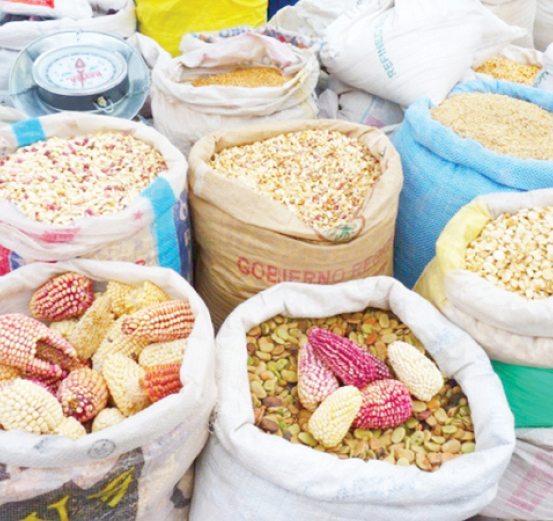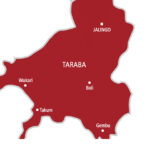In recent weeks, efforts by the Central Bank of Nigeria to arrest the free fall of Naira have seen it appreciate marginally against foreign currencies especially the dollar, leading to relative stability in the forex market.
On Tuesday, February 20, the Naira depreciated to N1,500 and above N1,800 against dollar at the official and parallel market respectively — a situation that resulted in sharp increase in prices of essential commodities in the country.
A week later, on Tuesday February 27, 2024, the Apex Bank resumed the sale of dollars to Bureau de Change operators three years after its suspension. With the development, $20,000 will be available to each eligible BDC operator at the rate of N1,301/$.
Following the move and others such as the revocation of licence of 4,173 BDC operators taken to address the naira free fall, the forex market has witnessed relative stability in recent weeks, with the country’s currency appreciating from N1,800 to around N1,590 against dollar in the parallel market.
- Food crisis: Soaring food prices, food insecurity and climate change
- Nigeria and its soaring food prices
Despite this, prices of many essential commodities – especially locally-produced ones – have not dropped, against the expectation of many Nigerians who thought the food prices would drop as the naira gradually recovers.
A brief survey at Muda Lawan Market in Bauchi revealed how prices of major commodities surged up in recent weeks. As of Monday, March 11, 2024, a 5litre King’s Oil was sold at N12,000 as against the former price of between N11,000 and N11,500.
A measure of sugar went for N2,400 – N2,600 against the previous N2,000/N2,200; a bag of Irish Potatoes was N46,000/47,000 against N35,000; a measure of rice was N1,800 against N1,600; a fairly large tuber of yam sold for N1,800–N2,000 against N1,500; packet of maggi: N1,100–N1,200 against N1,000; a crate of eggs: N3,400 – N3,500 against N3,200 – N3,300, among other food items.
Experts have observed that the marginal gain in naira against the greenback might not necessarily translate to reduction in the prices of imported goods considering that the Central Bank of Nigeria (CBN) on February 14, 2024 increased the exchange rate for computing Customs duties at the nation’s seaports by 2.6 per cent — the fifth increase this year.
The rate was reviewed upward on from N1, 444.56/$ to N1,481.482/$, according to information obtained from the official trade portal of the Nigeria Customs Service.
This means importers will pay more to clear their goods as import duties are benchmarked against the dollar.
Traders blame price increase on supply shortfall
Mika’il Abubakar Garba (aka Bala Mai Kaji), the Chairman of Muda Lawan Market in Bauchi, argued that supply shortfall occasioned by border closure and other factors were responsible for the increase in food prices.
He said, “I don’t agree that merchants are hiding under the guise of dollar-naira issue to increase prices of goods. What I do know is that some merchants increase prices of their old stocks as soon as they learn of price increase from the companies they buy their goods. Their argument is that if they sell at the old price, they will not realise enough profit to restock.
“We can’t deny the fact that there are few merchants who buy and store products when they are cheap and sell when prices are high. But by and large, the issue is that, our domestic production in the country is not enough and yet the little that is produced is sometimes exported to other countries. Usually after harvest – when produce are available and cheaper – companies and other business moguls buy from farmers to either export it out of the country or store it for selling when the supply is less at the market and the prices are high.
“You see, when you have limited supply and high demand, prices will definitely go up. With the borders closed, it means there will be less or no competition to neutralise the price in the market and break the monopoly enjoyed by the few that wield power at the markets. I assure you that if there’s importation, the price will crash and remain relatively stable.”
Mai Kaji, however, advised the government to reopen land borders, allow importation and force companies to bring out their stored commodities to the market to meet the country’s demand.
“Government should just come out and help people by allowing importation. There’s no point in allowing exportation and then stopping importation when what we have in the country is not enough to meet our demand,” he added.
Alhaji Adamu Speaker, the Chairman of Bauchi Central Market, blamed the situation on the restriction of naira to purchase goods from companies.
“Before now our people bought goods using naira, but now they have to use dollars. I assure you that our merchants here are doing their best in keeping the prices relatively stable at least when compared to other markets.
“At this critical period, what is important is to have the commodities in good quantity in the market so that market forces will pull the price down,” he added.
An economist and senior lecturer, Dr. Yahaya Yakubu, cited supply rigidity, structural problems and border closure as some of the factors, leading to less or no reduction in prices of goods and services even when naira is gradually appreciating at the global market.
He explained, “First of all, it is important to understand that the Nigerian economy is an import dependent economy in terms of manufacturing goods. If you have an import dependent economy, your economy is vulnerable to volatility of exchange rate, so whatever happens to the exchange rate, the economy will be affected whether positively or negatively.
“In a developing economy like Nigeria, we have what is called structural deficiency or supply rigidity in such a way that if there’s a break in supply of a particular commodity or if there’s a change in the cost of production of a particular commodity, it will easily affect the prices of goods and services.
“But because of inconsistency in the supply, consumers will hardly see the changes or reduction in price even when there is reduction in the production cost. Our own economy has certain peculiarities in that hardly will you see prices coming down after surging up, and one reason for that is the structural problem we have in the country.
“That is why I always insist that the government should be very careful in making pronouncement or taking policies that will shoot up prices, considering the effect this action has on the economy.
“During the tenure of President (Muhammadu) Buhari, for example, there was a policy pronouncement that the government was going to ban the importation of textile materials. From that pronouncement, the prices of textile materials surged up, and the government was unable to revitalise the domestic textile industry due to certain structural problems.
“Look at what happened also when the current President made a policy pronouncement about fuel subsidy removal during his inauguration. The price of Premium Motor Spirit skyrocketed. So it’s always good to understand the ‘workings’ and peculiarities of your economy first before making such pronouncements as they have impact – mostly negative – on the economy.
“If we have consistency in supply, free flow of supply just like the developed economy where production is consistent and heavy, production is efficient and going on at any time, then time lag of changes in price will be less; that is the time it will take before the prices of goods and services will come down when they go up will be less.”
The expert further explained that closure of land borders was also compounding the issue of food scarcity which ultimately led to increase in price.
“If you close your borders, you are compounding the problem of supply in the system. For example, the current domestic rice production capacity in the country is not enough to meet the demand of the population, and therefore we need about 2.5m metric tonnes to fill the supply gap.
“The only way you can make up for the deficiency is by interacting with other economies through importation. When you close the border and allow certain individuals to import goods, you’re creating a monopoly in the system and so they will control both the supply and the price. So, we have to open the economy and enable competition so that adequate supply will force the price to go down.”

 Join Daily Trust WhatsApp Community For Quick Access To News and Happenings Around You.
Join Daily Trust WhatsApp Community For Quick Access To News and Happenings Around You.


